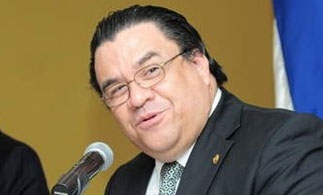A debate over official homicide statistics in Honduras raise questions about whether the government is politicizing murder rates in the run-up to presidential elections.
The country’s Security Ministry has reported 2,629 homicides for the first half of 2013, a much lower total than the 3,547 homicides counted during the same period by the Violence Observatory at the National Autonomous University of Honduras (UNAH).
Security Minister Arturo Corrales claimed the discrepancy is due to a difference in methodology, reported El Heraldo. According to Corrales, the government only registers homicides documented by the Attorney General’s Office — a method that excludes disappearances, unidentified bodies or lack of an official government report.
The Observatory, on the other hand, tracks all police reports of violent deaths, as well as forensics and Attorney General’s Office reports of deaths. It then has a regular meeting in which it determines which murders it includes and which it weeds out because of discrepancies, and from there determines the total.
InSight Crime Analysis
The discrepancy goes to the heart of a problem with statistics: they often reflect the needs of the administration in power rather than the reality on the ground. The irony is that government anointed the Observatory the task of collating the data for exactly this reason, but it appears that politics may soon smother it.
Presidential elections are November 24, and the ruling National Party’s candidate, Juan Orlando Hernandez, is in a tight race with Libre party candidate Xiomara Castro de Zelaya.
The Security Ministry’s lower statistics would represent an 18 percent drop in homicides, a highly improbable scenario in the world’s most violent country, where 2012 was the deadliest year on record and killings had risen year-on-year since 2004.
The ministry may be reaching unnecessarily. According to Observatory data, the current rate for 2013 is 80 per 100,000 people, representing a more than six percent decrease from last year. The Observatory had previously predicted a 6 percent drop in the homicide rate for 2013, due mostly to population growth.
With the inauguration of a new military police force following the recent deployment of the military in the country’s major cities, it is also in the interests of the government to present more positive statistics to support its continued pursuit of militarized law enforcement.

